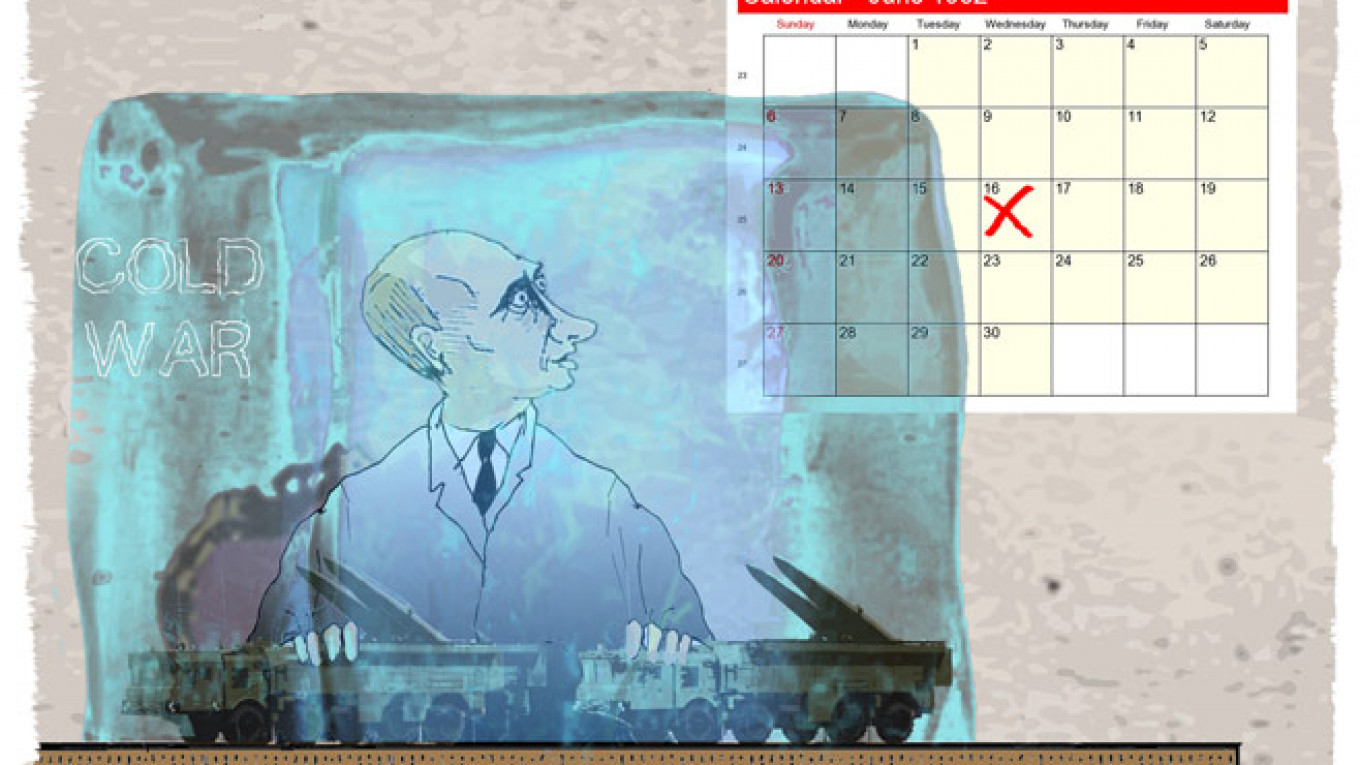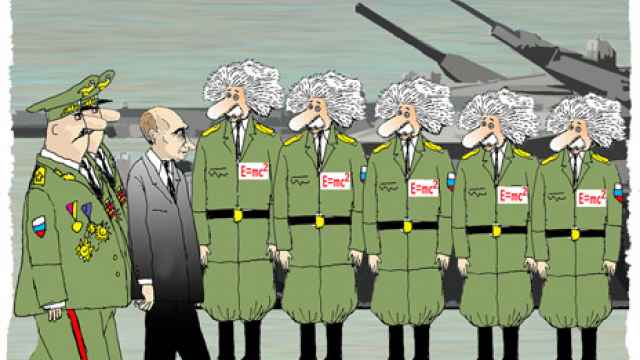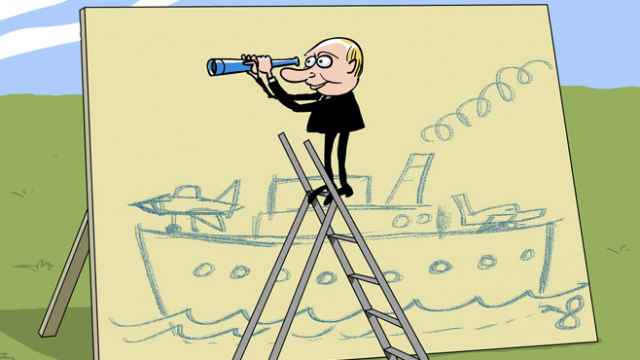While experts debate whether a new Cold War is possible in the 21st century, such a war has already started. This time, The Associated Press played the role of harbinger, just as the famous "long telegram" that George Kennan sent from the U.S. Embassy in Moscow in 1946 presaged the first Cold War.
The AP quoted a report of the U.S. Joint Chiefs of Staff on possible U.S. responses should Russia violate the Intermediate-Range Nuclear Forces (INF) Treaty, including once again placing intermediate-range missiles in Western Europe to provide a "countervailing influence" to those held in Russia.
Some time later, British Foreign Secretary Philip Hammond defended the option of placing U.S. nuclear missiles on British territory. "We must send a clear signal to Russia that we will not allow them to cross our red lines," he said.
That is the logical result of the Russian authorities' attempt to blackmail Washington by threatening to withdraw from the INF Treaty. Back in the mid-2000s, former Russian Defense Minister Sergei Ivanov repeatedly claimed that Russia had compromised its security by giving up medium-range missiles in 1987. His argument: In the quarter-century since, many countries had obtained such missiles and had begun to threaten Russia.
In fact, such arguments are pure sophistry. Russia's arsenal gives it absolute nuclear superiority over every other country but the United States. For some reason, Russian leaders felt that their threat to withdraw from the INF could seriously frighten Washington.
The Russian press also ran occasional reports stating that modifications to Iskander short-range missiles could enable them to easily fly beyond the 500 kilometer limit imposed by the INF Treaty. From time to time, Moscow also threatened to deploy Iskander missiles to the Kaliningrad region.
And only a few days ago, Deputy Defense Minister Yury Borisov announced that Russia would soon introduce a new missile complex to replace the Oka system that was destroyed in compliance with the INF Treaty.
Approximately one year ago the United States directly accused Russia of violating the INF Treaty. However, Washington never publicly specified the exact violation. That definitely makes it more difficult for the U.S. to score propaganda points, but I suspect the Pentagon did not want to reveal its intelligence capabilities.
Nonetheless, U.S. military experts are certain that Moscow really did conduct tests in violation of the INF, and have now openly begun discussing options for retaliation if Russia begins deploying medium-range missiles.
The Kremlin can take pride in the fact that, after directing every imaginable threatening statement at the West for the past 10 years, Europe and the U.S. are finally taking it seriously.
That is what I call the beginning of a new Cold War. I will even hazard my own definition of the phenomenon. Cold War is when two countries have a disagreement that they cannot solve either diplomatically or militarily. In this case, Moscow has essentially made the diplomatically untenable demand for the special right to decide the destiny of former Soviet republics, while the enormous nuclear arsenals of Russia and the U.S. make a military solution impossible.
As a result, they have resorted to military deterrence based on the concept of mutually assured destruction. The recent statement of the Joint Chiefs of Staff offers what seems to be the first evidence that the West has adopted such a strategy.
According to one Pentagon official quoted in the Wall Street Journal, "We are dedicated first to deterrence. It is clear the Russians see us as an adversary. And so we have to ask: How do we inject stability into an environment that looks volatile?"
Once the two sides are locked in such a confrontation, they stop responding to official pronouncements and focus exclusively on their opponent's military and technical capabilities. For example, the West is very interested in whether Russia can actually mass produce the new missile system it has announced. The answer might be "no," considering official data that Moscow has managed to produced only 60 Iskander missile launchers since 2006.
It seems that Russia is incapable of engaging in a Soviet-scale arms race with the United States. However, with the possible end of the INF Treaty restraints, Moscow and Washington return to the dead end of the early 1980s when Soviet missiles could reach, say, London and Bonn, but not the North American continent, while U.S. Pershing missiles and land-based cruise missiles were capable of reaching Moscow and Leningrad within minutes.
Welcome to the "new old world." I suspect that this is the world President Vladimir Putin inhabits, the one German Chancellor Angela Merkel referred to when she said that he "lives in another world."
Alexander Golts is deputy editor of the online newspaper Yezhednevny Zhurnal.
A Message from The Moscow Times:
Dear readers,
We are facing unprecedented challenges. Russia's Prosecutor General's Office has designated The Moscow Times as an "undesirable" organization, criminalizing our work and putting our staff at risk of prosecution. This follows our earlier unjust labeling as a "foreign agent."
These actions are direct attempts to silence independent journalism in Russia. The authorities claim our work "discredits the decisions of the Russian leadership." We see things differently: we strive to provide accurate, unbiased reporting on Russia.
We, the journalists of The Moscow Times, refuse to be silenced. But to continue our work, we need your help.
Your support, no matter how small, makes a world of difference. If you can, please support us monthly starting from just $2. It's quick to set up, and every contribution makes a significant impact.
By supporting The Moscow Times, you're defending open, independent journalism in the face of repression. Thank you for standing with us.
Remind me later.







